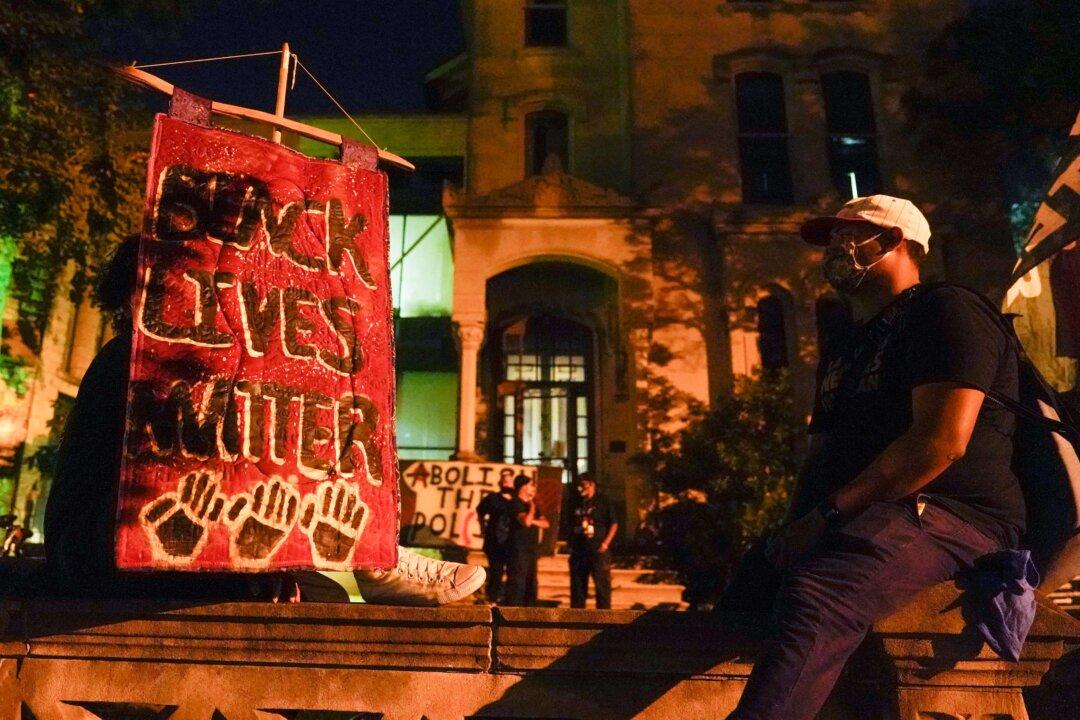LOUISVILLE, Ky.—A diverse crowd of hundreds marched in Louisville’s streets chanting “Black Lives Matter” on Saturday night, the fourth night of protests after a grand jury declined to charge officers in the fatal shooting of Breonna Taylor.
People in the crowd also chanted “No justice, no peace” as cars honked along a busy downtown artery in this Kentucky city that has seen more than 120 days of demonstrations over the death of the 26-year-old black woman in a police raid gone wrong.





